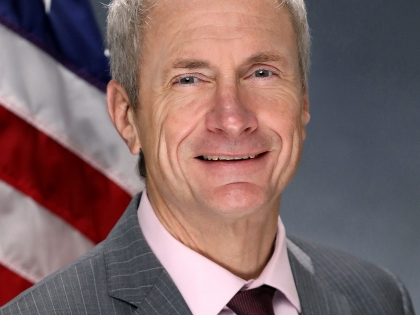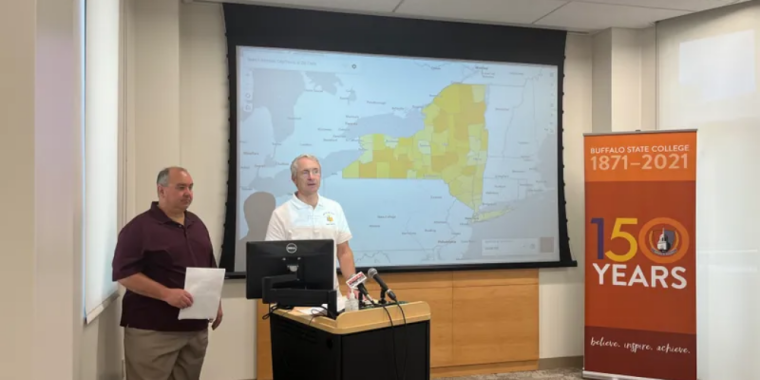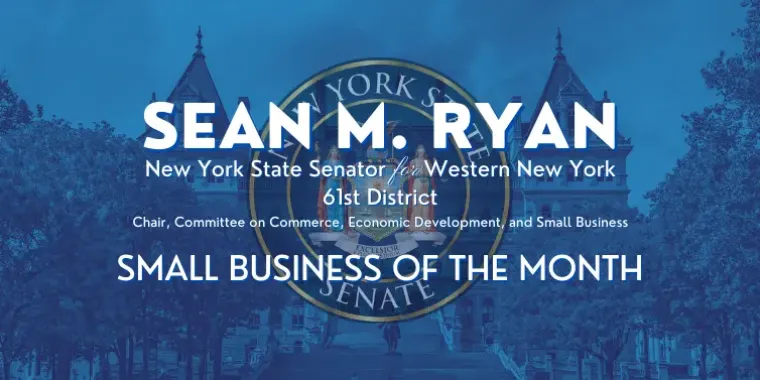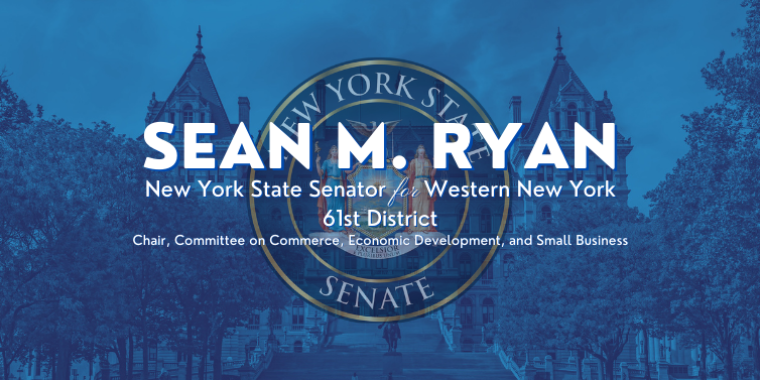
Broadband internet as a public utility: NYS Senator Ryan highlights internet accessibility problem (WBEN)

Photo Credit: Max Faery/WBEN
Buffalo, N.Y. (WBEN) - New York State Senator Sean Ryan Friday highlighted the next steps of his Comprehensive Broadband Connectivity Act, which called for NY's Public Service Commission to study the affordability, accessibility and reliability of high-speed internet services and publish a detailed internet access map of the state.
Senator Ryan secured $1 million to fund this initiative and the map released Thursday by New York's Public Service Commission highlighted some clear issues facing our state in regards to Internet accessibility.
"It showed us the broad brushstrokes that we thought it would, that 97% of New Yorkers have access. That sounds pretty good at first blush, but it also means at least 140,000 people don't have access at all. In New York City, in Long Island, it's well over 99%. That means most of the underserved areas are areas of Upstate New York," said Senator Ryan.
The map also highlights the problem of New York's Internet reliability.
"This map showed problems with both reliability and lack of competition. More than half of the people who have internet in New York State only have access to one provider. The consumer has access to broadband, but they're at the mercy of one provider and we all know lack of competition has never been good for consumers," said Senator Ryan.
"It seems to be happening mostly in urban areas and rural areas, the suburban areas in New York State seem to have more than one choice of providers. This also explains why more than one half of New Yorkers are getting slow speeds on their internet. We have a competition issue and we have a quality issue and these issues seems to hit low income communities the hardest. The report found that the communities who have fewer providers also have slower than average speeds and higher than average prices."
Senator Ryan has already come up with solutions to combat these Internet issues.
"This data is going to help the state build out the internet across New York, We created Connect All within the Office of Empire State Development to ensure that the broadband funding that we have available through the federal and state government actually goes to the communities of highest need and we also included the Wired Broadband Act, which will help ensure that we use our broadband funding in a way that's absolutely transparent, but also very efficient. Part of the Wired Broadband Act includes labor standards. We want to make sure it's not fly by night contractors from out of state coming in, to do our build out. We want to keep that labor in New York State and we want highly skilled labor," said Ryan.
"We're going to connect more homes to broadband. In doing so, we're going to add to the economy and make sure that people are doing the connectivity are getting paid a wage that can make it so you can live in the community. More is to come," the senator added.
Why does half of New York State only have access to one provider?
"Municipalities granted monopolies to cable companies when the cable companies first came out and those same cable companies are now delivering through cable, the internet access. They came in under sort of this old system and now they've grown within that space, which then leads to the consumer just a having no choice, but also just having no recourse if there's a problem," said Senator Ryan.
"The cable companies and the Verizons of the world basically split up territories. You're over here, we're over here and you could charge more over here and we could charge more over here. We're not fighting each other when you get top dollar," said Communication Workers of America's Tom Roulley.
"An example of that is when FiOS came through New York to build the fiber optic. Spectrum and the telephone companies met and they decided you can put the fiber optics all throughout the suburbs. Don't touch the cities and so Spectrum got to keep buffalo Rochester, Syracuse and Albany in terms of consumers with no choice and then the suburbs got choice between Spectrum or FiOS, but generally, they split up the territory. That's something we would consider to be illegal monopolistic practices," added Senator Ryan.


